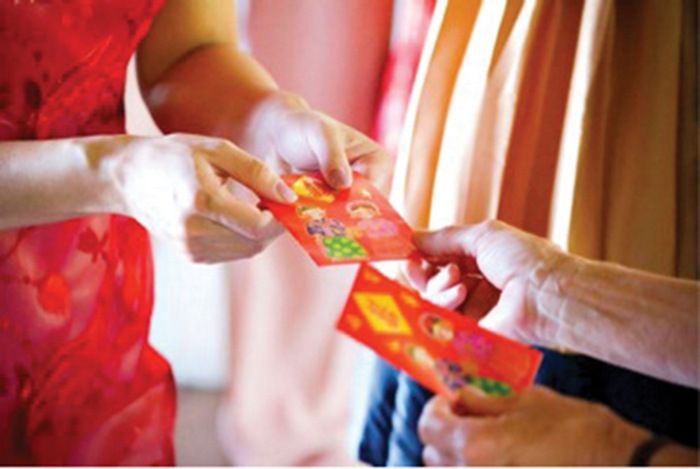Connexion: The Angpow Story


Connexion
By Joachim Ng
What do you like most about Chinese New Year? Ask a kid and the reply will be instant: angpow or hongbao. There’s grace in receiving as it marks the number of connections you have… parents, grandparents, uncles, aunties, married cousins, close neighbours, and family friends. Employees get the red packet too, from their bosses and office suppliers.
Benevolent giving extends to the elderly, the needy, and also the unmarried adults as, in pre-modern times, remaining single was a sign of economic failure. If there are persons in your contact circles — especially the lowly paid — to whom you wish to express care and appreciation, the time has come to show it with an angpow. Ethnicity doesn’t count as any qualified person can be a recipient.
Recognizing the convenience of giving and receiving money in pocket-sized envelopes, its adoption by non-Chinese ethnic groups has long transformed the angpow into a shared cultural practice. Muslims hand out green ‘duit raya’ for Aidilfitri, and purple angpows augment Deepavali celebrations. Red, green and purple — colours of diversity, colours of Malaysia.
The more the practice of giving money is shared, the more the angpow serves its filial mission — and that is, to establish a family culture of shared prosperity. Family, in its broadest Confucian sense, embraces the total human world. Hence, inclusive growth is encouraged. As said in the classical I Ching text: “It is not the private interests of the individual that create lasting fellowship among people, but rather the goals of humanity.” One of these goals is shared prosperity as signified by the angpow.
The tradition began 2,200 years ago with coins wrapped in leaf (the original paper-making ingredient) as a ritual expression of Chinese society’s wealth goal: that everyone should have enough to live by. To this day, Chinese New Year begins on a prosperous note with a broadly auspicious greeting accompanying the red paper packet: Gong Xi Fa Cai or Kung Hee Fatt Choy (Hail to Rising Prosperity). The receiver is expected to save 30% of the angpow money (3 signifies life and hence your savings enable you to grow wealth tenfold). The rest you can spend on buying fresh necessities.
Custom dictates that everyone is both a giver and a receiver. When you are a child or single person, you receive. After you get married, you give. If you’re a subordinate, you receive. When you become the boss, you give. If you are lowly paid although married you receive, but as a married person you must give to those who are dependent on you such as children, the elderly, and the sick.
There is deep meaning in the little red packet as it simulates the Confucian ideal of reciprocal giving. This isn’t necessarily a straight-line interchange between two persons; reciprocity as envisaged by Confucius is a chain-link activity that binds everyone together in a wide circle of prosperity: I give you 50 ringgit today because you lost your job, and next year you give a sick elderly person 60 ringgit to buy medicine. One day some friends may present me a needed gift worth 70 ringgit.
Reciprocal wealth distribution ensures that the giver — or taxpayer in modern parlance — will continue to be prosperous. When money flows around the circle, nobody goes hungry and this provides economic stability as well as averts political unrest. To reciprocate, the tax-exempt workers must uplift their earning power and join the ranks of taxpayers. It is a salient point that, as revealed by the Prime Minister in 2014, only one out of 10 Malaysians pay income tax.
Reciprocity is, in fact, the way of nature. Scientists observing the conduct of bats have found that when the flying creatures leave their cave for night work, some fail in their hunt and return empty mouthed. However, the successful hunters share their catch so that no bat goes hungry. The practice makes economic sense as luck may go into reverse. You feed me when I’m hungry, and I or someone else will feed you when you are hungry.
That’s the significance of Kung Hee Fatt Choy: Hail to Rising Prosperity for Everyone!


